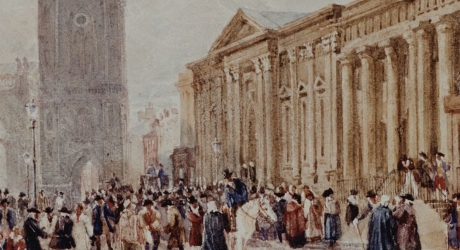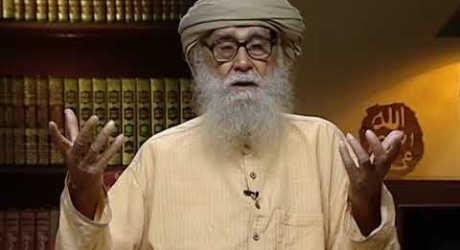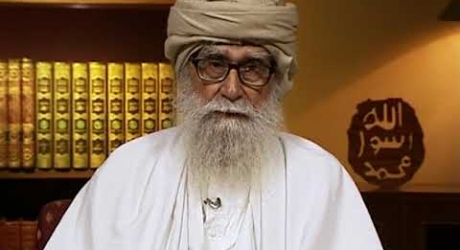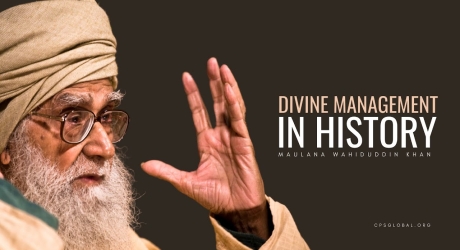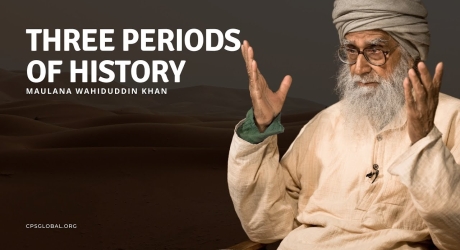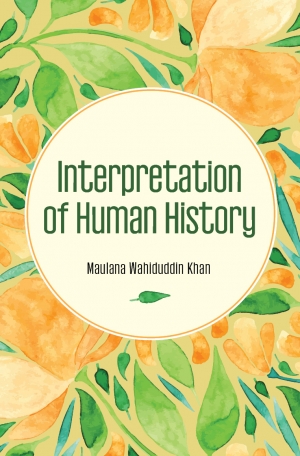The correct interpretation of human history, in reality, can be only one: one that is in accordance with the Creator's scheme of things. Human history began with a man and a woman, and following a continuous birth and death process, countless people have come to this world. This chain has been established from generation to generation for thousands of years. In the first quarter of the 21st century, the number of humans on the entire planet exceeded seven billion. Those who have died before then did not perish but are still alive. They will be raised in the Hereafter.
God created an ideal world that is perfect in all respects. He ordained that impeccable ideal human beings inhabit this ultimate world. God first settled man on Earth to achieve this target, giving him complete freedom. The present world is a selection ground for this grand project. Here, God is observing who makes proper use of his freedom and who misuses it. At the end of the history of human history will be Doomsday and the Day of Judgment. On that Day, those who have abused their freedom will be rejected, and those who may have exercised it judiciously will be selected and settled in eternal Paradise. The concept of Paradise is a beautiful idealisation of human wishes; it would be more accurate to call it a beautiful interpretation of human history.
Human history has a beginning as well as an end. The end of human history will be followed by another world—a flawless one in the fullest sense. This world will be inhabited by selected people from all over human history. In a similar vein, the Quran tells us, "My righteous servants shall inherit the earth." (21:105)
Featured Articles
Featured Videos
FAQs
No, Islam does not believe in the concept of karma. The concept of karma rests on the notion of the perpetual re-birth of a person until the soul is cleansed, after which it finally joins the divine. According to this concept, it is the outcome of the karma of a person that determines his next form in his re-birth and this cycle continues.
According to Islam, a person’s life is eternal, a fraction of which he spends on the planet earth. The time he spends on earth is a test. How he has performed in this test will be evaluated after his death on the Judgment Day. The Quran says:
On that Day people will come forward in separate groups to be shown their deeds: whoever has done the smallest particle of good will see it; while whoever has done the smallest particle of evil will see it. (Quran 99:6-8)
Source: The Seeker’s Guide
Yes, the positive aspect of death is the sense of urgency that it creates in a person. That is, the thought of death makes a person realize that whatever needs to be done should be done at the present moment. Whether or not a person believes in religion, the concept of death would still instil a sense of urgency in him.
Source: The Seeker’s Guide
God created an ideal world that was perfect in all respects. He ordained that this ultimate world be inhabited by impeccable ideal human beings. To achieve this target, God first settled man on Earth giving him complete freedom. The present world is a selection ground for this grand project. Here, it is being observed as to who makes proper use of his freedom and who misuses it. At the end of history, those who have abused their freedom will be rejected, and those who may have exercised it judiciously will be selected and settled in heaven. Contrary to atheist thinkers who term the concept of paradise a beautiful idealization of human wishes, it would be more accurate to call it a beautiful interpretation of human history.
God’s creation plan is in fact a complex one. One part of it pertains to maintaining complete human freedom, while the other is that of continuing to manage it according to His own knowledge till the completion of this plan. Thus, it is a matter of managing bilateral demands. Any comprehensive interpretation of history is possible only if it is viewed in the light of these bilateral requisites. This is the correct principle of interpretation of history. It is not possible for anyone to interpret history without taking this principle into account.
Although it is man who performs the task of interpreting human history, the creator of man is God rather than man. Therefore, the only guiding principle for the interpretation of history for a historian could be for him to first discover the Creator’s plan of creation. This is the key principle, and no one can interpret history correctly without keeping this in mind. In the following pages, I seek to find a coherent interpretation of history in the light of this principle.
Source: Interpretation of Human History
History, in a simple sense, is a narration of events. Whereas the interpretation of history is related to the philosophy of history, that is, to discover those laws which are at work in the process of history. Various theories have been put forward in this regard, but all of them are based on human imagination. The correct interpretation of history is that which is in accordance with the Creator’s plan of creation for man.
According to the creation plan, the creator did not create the present world in order to establish an ideal system at the collective level. It has actually been created for the purpose of testing human beings. That is why, God has given man complete freedom to everyone. Man has the choice to make proper use of his freedom or misuse it, to lead a life of righteousness or a life of wickedness. Therefore, an ideal system, at the collective level, at the level of the whole of humanity, cannot be established in this world. It is only in Paradise that an ideal system can come into being.
The present world is in fact a selection ground of ideal individuals who will be found eligible to inhabit the ideal world of Paradise in the Hereafter. Ideal individuals are being selected from every generation. For instance, in the first generation, Adam’s son Cain was rejected while his other son Abel was accepted. The same process has been going on throughout history. In every age and in every generation, God has been selecting deserving candidates while rejecting the undeserving. It is described in the Quran thus: “…a large group of the earlier people and a large group of those of later times.” (56:39-40)
Once this desired list of accepted and rejected individuals is complete, the Creator of the universe will replace this world with an ideal world, that is, Paradise. Then the individuals who had been selected would be settled in this Paradise to enjoy a life free from fear and sorrow forever, whereas those who had been rejected would be thrown into the universal dustbin to live a life full of intense regret and remorse for all eternity.
Source: Interpretation of Human History


